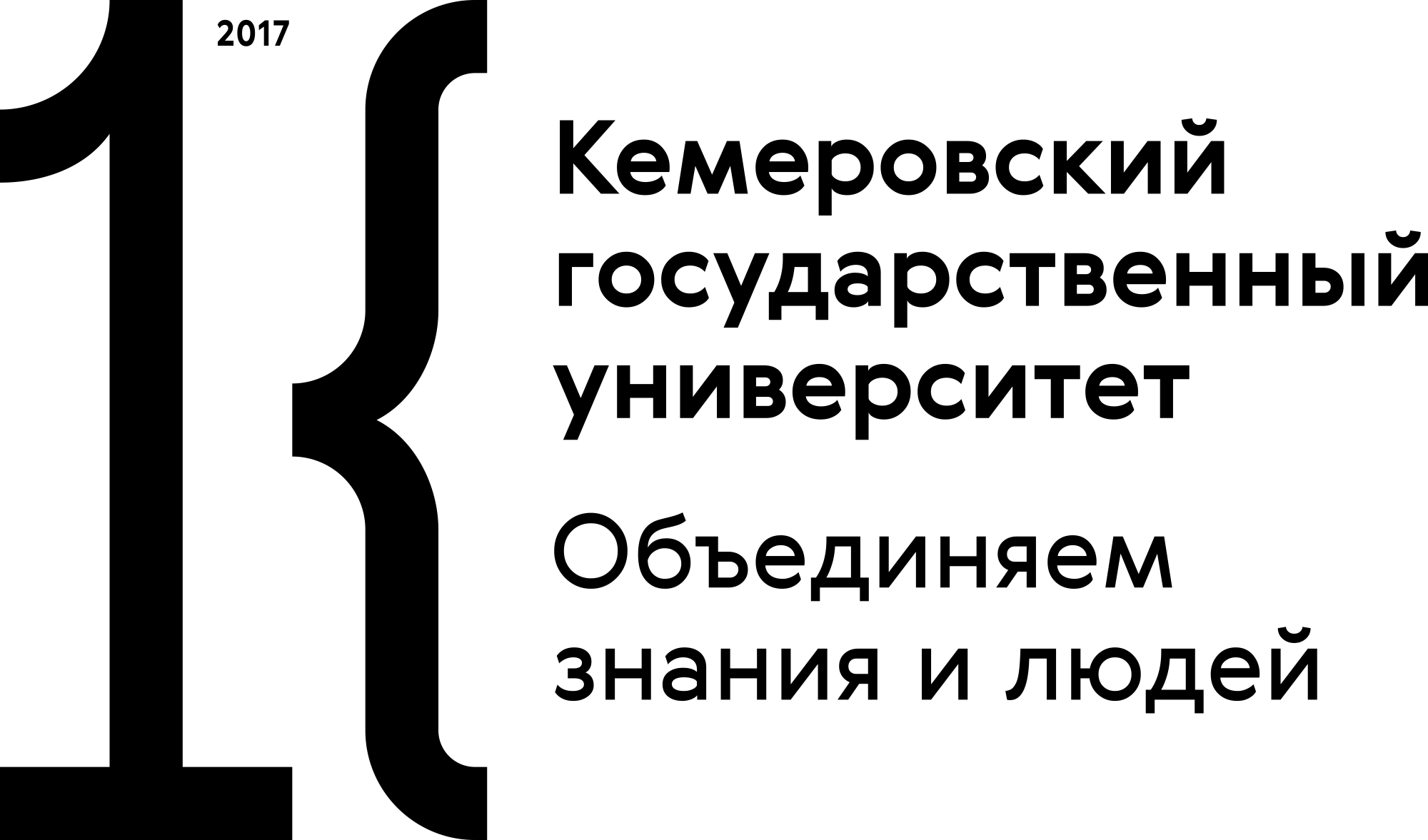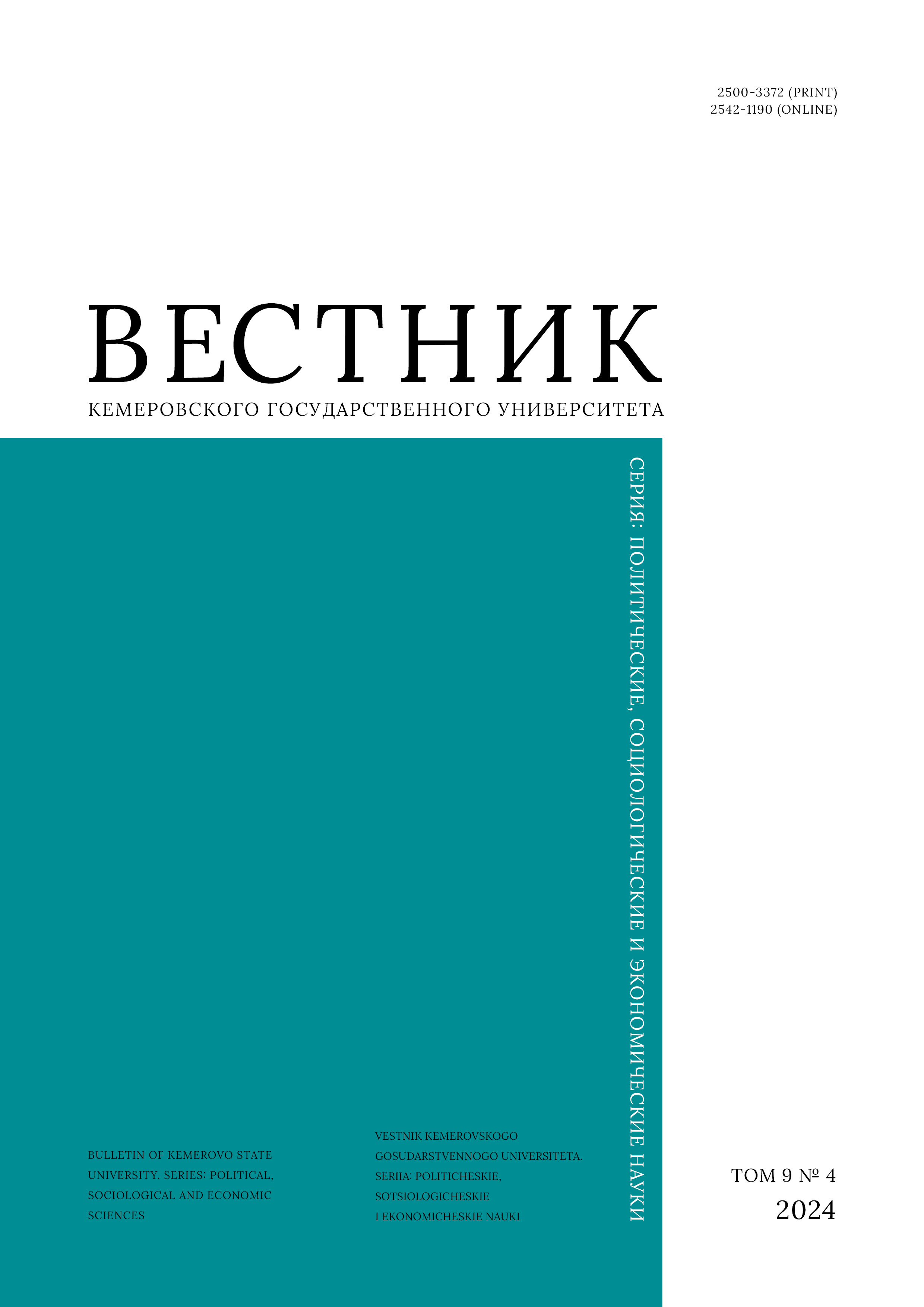Novokuznetsk, Russian Federation
The Kemerovo Region is a poorly diversified subject of the Russian Federation, which needs to transform its human capital and overcome the existing managerial and technological transaction costs. The article describes the problem issues of the regional market, as well as the current measures in the sphere of education. Regional universities are ready to implement anthropological and convergent approaches in order to develop meta-professional competencies and complex industrial skills by integrating professionalization and social intentions. Internalization is an internal mechanism that supports self-identification. Personal, social, and professional identification are to go in line with the country’s development strategies through 6–8 years. They should be guided by the factors of domestic socio-economic growth to level the ideological contradictions between individualism and collectivism in Russia. The strategies are the vectors of the managerial, financial, technological, socio-economic, and cultural policy of the state in formal and informal institutions. The proposed concept is based on the transformation of personal and social worldview to motivate improving the quality of human capital and develop high-tech jobs that require digitalization skills.
stratagems, socio-economic development, anthropological approach, convergent approach, human capital, factors of economic growth
1. Pyankova L. A. Mental Concept of Professional Identification in Youth: Part I. Vestnik Kemerovskogo gosudarstvennogo universiteta. Seriia: Politicheskie, sotsiologicheskie i ekonomicheskie nauki, 2024, 9(2): 220–229. (In Russ.) https://doi.org/10.21603/2500-3372-2024-9-2-220-229 EDN: https://elibrary.ru/BLQMRV
2. Arshinov V. I., Budanov V. G. Paradigm of complexity and socio-humanitarian projections of convergent technologies. Voprosy filosofii, 2016, (1): 59–70. (In Russ.) https://elibrary.ru/vsasit
3. Zhironkina O. V. Domestic and foreign experience of pedagogical convergence analysis. Vestnik Kemerovskogo gosudarstvennogo universiteta. Seriia: Gumanitarnye i obshchestvennye nauki, 2021, 5(3): 201–211. (In Russ.) https://doi.org/10.21603/2542-1840-2021-5-3-201-211 EDN: https://elibrary.ru/HYHXWI
4. Baksanskii O. E. Worldview of the future: Convergence as a fundamental principle. Pedagogy and education, 2014, (3): 17–29. (In Russ.) https://doi.org/10.7256/2306-434X.2014.3.13521 EDN: https://elibrary.ru/TFCTOZ
5. Blinova T. L. Convergent approach in learning. Pedagogical Education in Russia, 2018, (8): 42–48. (In Russ.) https://doi.org/10.26170/po18-08-06 EDN: https://elibrary.ru/XYCBBZ
6. Kovalchuk M. V., Naraikin O. S., Yatsyshina E. B. Convergence of science and technology – a new stage of scientific and technological development. Voprosy filosofii, 2013, (3): 3–11. (In Russ.) https://elibrary.ru/pyklut
7. Deev M. V., Kravets A. G., Finogeev A. G. Development of an information educational environment based on a convergent approach. Systems of Control, Communication and Security, 2017, (3): 119–134. (In Russ.) https://elibrary.ru/zxplmx
8. Fukuyama F. Our posthuman future, consequences of the biotechnological revolution. Moscow: AST, 2004, 349. (In Russ.) https://elibrary.ru/qoexll
9. Danilin I. V. Convergent (NBIC) technologies: Problems of development and transformational potential. Vestnik RUDN. International Relations, 2017, (3): 555–567. (In Russ.) https://doi.org/10.22363/2313-0660-2017-17-3-555-567 EDN: https://elibrary.ru/ZEWETZ
10. Schmidt J. C. NBIC – Interdisciplinary? A framework for a critical reflection on inter- and transdisciplinary of NBIC-scenario. Georgia Institute of Technology Working Paper, 2007, (26): 1–15.
11. Roko M. C., Bainbridge W. S. Converging technologies for improving human performance: Nanotechnology, biotechnology, information technology and cognitive science. Dordrecht: Springer, 2003, 468. http://dx.doi.org/10.1007/978-94-017-0359-8
12. Bisko A. T. Sociocultural interpretation of the anthropological approach to education. Teoriia i praktika servisa: Ekonomika, sotsialnaia sfera, tekhnologii, 2010, (1): 90–102. (In Russ.) https://elibrary.ru/lmcudv
13. Agazzi E. Moral dimension of science and technology. Moscow: Moscow philosophical foundation, 1998, 344.
14. Barulin V. S. Man: Multidimensional and integrity of his relation to social life. Lichnost. Kultura. Obshchestvo, 2004, 6(1): 108–118. (In Russ.) https://elibrary.ru/hsktkz
15. Valverde C. Philosophical anthropology. Moscow: Christian Russia Publ., 2000, 412. (In Russ.) EDN: https://elibrary.ru/VYTHCL
16. Vernadskii V. I. Biosphere and anthroposphere. Moscow: Airis-press, 2004, 575. (In Russ.)
17. Zaksse Kh. Anthropology of technology. Philosophy of technology in Germany, eds. Ignatovskaya N., Leontiev V. Moscow: Progress, 1989, 424–439. (In Russ.)
18. Kormer V. F. Man plus machine. Moscow: Vremia, 2009, 195. (In Russ.)
19. Rozin V. M. Biosphere and anthroposphere. Moscow: Per Se, 2012, 360. (In Russ.) https://elibrary.ru/rayxkp
20. Morozova E. A., Kochneva O. P. Youth migration in the Kemerovo Region (Kuzbass). Vestnik Kemerovskogo gosudarstvennogo universiteta. Seriia: Politicheskie, sotsiologicheskie i ekonomicheskie nauki, 2021, 6(3): 326–338. (In Russ.) https://doi.org/10.21603/2500-3372-2021-6-3-326-338 EDN: https://elibrary.ru/IOVVLU
21. Ulmyasbaeva A. O., Zabneva E. I. A new view on educational migration mobility of youth in the regions. Izvestiia vysshikh uchebnykh zavedenii. Sotsiologiia. Ekonomika. Politika, 2023, (1): 95–107. (In Russ.) https://doi.org/10.31660/1993-1824-2023-1-95-107 EDN: https://elibrary.ru/FLHQHW
22. Pyankova L. A. Employment and the formation of professional competencies of "workers of the future". Vestnik TGU. Ekonomika, 2021, (54): 136–157. (In Russ.) https://doi.org/10.17223/19988648/54/7 EDN: https://elibrary.ru/XGXFOF
23. Dries N. The psychology of talent management: A review and research agenda. Human Resource Management Review, 2013, 23(4): 272–285. https://doi.org/10.1016/j.hrmr.2013.05.001
24. Gallardo-Gallardo E., Dries N., González-Cruz T. F. What is the meaning of "talent" in the world of work? Human Resource Management Review, 2013, 23(4): 290–300. https://doi.org/10.1016/j.hrmr.2013.05.002
25. Iliukhin A. A., Iliukhina S. V. Effect of regional social structure on labor resources. Discussion. Journal of Scientific Publications, 2015, (7): 33–44. (In Russ)

















